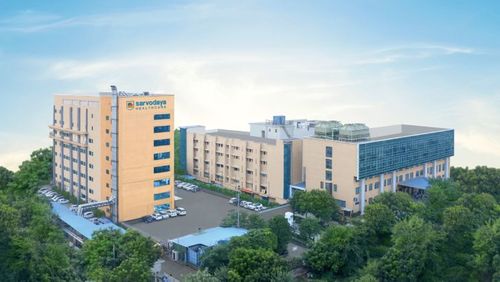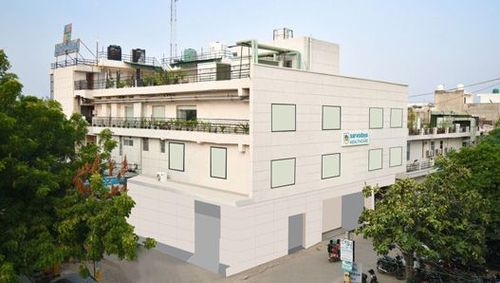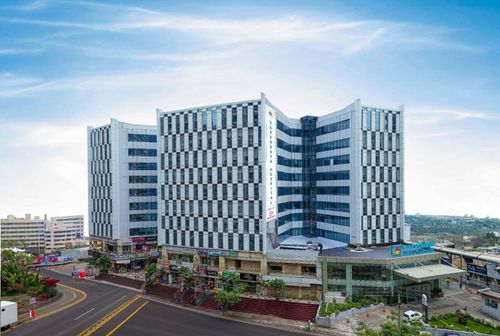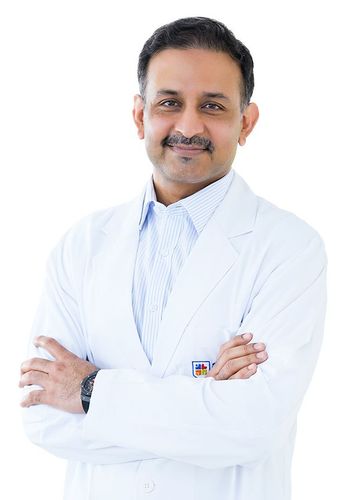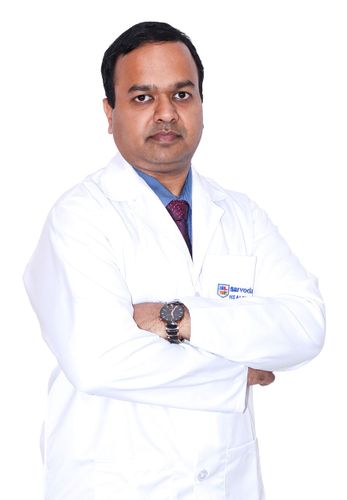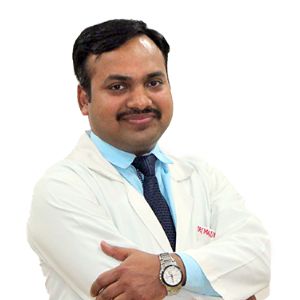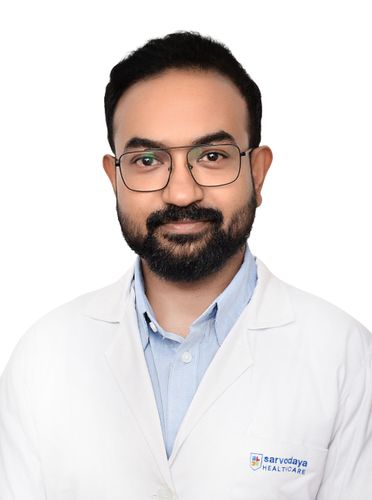Overview
Sports injuries can affect anyone, from professional athletes to fitness enthusiasts, and range from minor sprains to serious joint or ligament damage. At Sarvodaya Hospital, we offer comprehensive Sports Injury Treatment through our specialised Centre for Orthopaedics. Our team manages a wide range of conditions, including ACL tears, meniscal injuries, shoulder dislocations, and more.
We specialise in minimally invasive techniques like arthroscopy to treat ligament injuries, cartilage damage, and joint issues with precision and minimal downtime. While most sports injuries are treated through arthroscopic methods, selected complex cases may involve robotic guidance for enhanced visualisation and alignment. Our personalised rehabilitation plans ensure a safe return to physical activity with improved strength, mobility, and confidence.
Sports Injuries Symptoms
- Sudden pain during physical activity
- Swelling or inflammation around the injured area
- Limited range of motion in joints or muscles
- Bruising or discolouration
- Tenderness or soreness upon touch
- Instability in joints
- Inability to bear weight or continue activity
- Muscle weakness or fatigue
- Numbness or tingling
Sports Injuries Causes
- Overuse of muscles or joints
- Improper training technique
- Insufficient warm-up or stretching
- Sudden increase in exercise intensity or duration
- Direct trauma or impact
- Poor posture or body mechanics
- Inappropriate or worn-out sports gear and footwear
- Previous untreated injuries
Sports Injuries Diagnosis
Our specialists combine physical assessments with advanced imaging techniques to accurately diagnose the severity and type of sports-related injuries. Each case is carefully evaluated by an experienced sports injury doctor in Faridabad using the following methods:
- Physical examination to assess swelling, tenderness, range of motion, and strength
- Patient history and activity review to understand how the injury occurred and its impact on performance
- X-ray to detect fractures, bone dislocations, or joint misalignment.
- MRI Scan for detailed imaging of soft tissues like ligaments, tendons, and cartilage.
- Arthroscopy (if needed) for direct visual assessment and minimally invasive treatment of joint injuries
Sports Injuries Treatment in Faridabad
Treating sports injuries effectively requires a tailored combination of conservative care, advanced imaging, and surgical precision. We bring together medical expertise and state-of-the-art technology, including robotic surgery, for safe, high-performance recovery.
- I.C.E. Therapy – Rest, Ice, Compression, and Elevation to manage swelling and pain in minor injuries.
- Physiotherapy & Rehabilitation – Targeted exercises to restore flexibility, strength, and mobility.
- Orthopaedic Bracing or Splinting – Provides support and immobilisation to stabilise injured joints or muscles.
- Minimally Invasive Arthroscopic Surgery – Used to treat ligament tears, meniscus injuries, and shoulder conditions.
Sports Injuries Prevention & Lifestyle Modifications
At Sarvodaya, our team, led by the best sports injury doctor in India, emphasises preventive care alongside cutting-edge interventions like robotic-assisted surgery for athletes requiring advanced treatment support.
- Warm up properly before exercise or sports activity to prepare muscles and joints for physical stress.
- Follow correct posture and technique during workouts or training to reduce strain on muscles and ligaments.
- Use appropriate safety gear and well-fitted footwear to protect joints and avoid slips or impact injuries.
- Stay hydrated and maintain electrolyte balance for optimal muscle performance and injury prevention.
- Avoid overtraining – include rest days in your routine to allow tissue repair and prevent burnout.
Pre- & Post-Surgery / Treatment Lifestyle Modifications
Pre-Treatment Modifications
- Avoid high-impact activities
- Follow all imaging, medication, and fasting instructions
- Stop smoking and limit alcohol
- Prepare your home environment
- Discuss ongoing supplements or medications
Post-Treatment Modifications
- Follow the recommended physiotherapy or rehabilitation plan
- Gradually resume physical activity
- Avoid lifting, bending, or running
- Maintain a healthy diet and stay hydrated
- Use assistive devices like braces or supports
- Attend regular follow-ups


